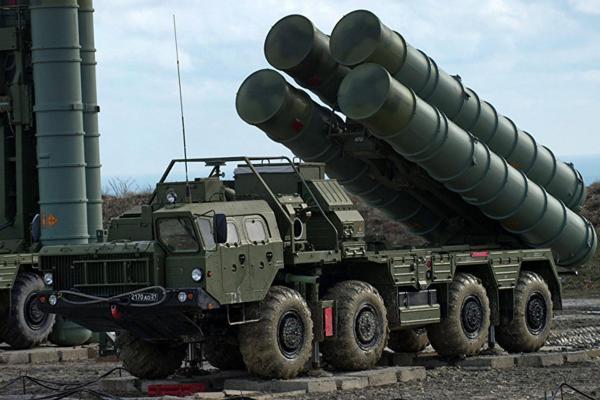Turkey-US conundrum, S-400 issue: Op-ed
MURAT ERSAVCI


The brutal attack of Putin’s Russia on Ukraine and its courageous people has shocked the civilized world. In the light of the flagrant violation of international rules and norms by Russia, many countries supported Ukraine, though initially, it did not really amount to much. However, on the other hand, one country, NATO member Turkey, has done more for Ukraine than most others. This was done despite being at great risk to itself.
Turkey has unequivocally and strongly supported Ukraine against Russian aggression. Not only rhetorically but with solid support as well. Mainly providing Bayraktar TB2 armed drones much before the commencement of hostilities of the war constitutes an example. One only has to watch the footage from all the international media to observe the havoc they are causing to Russian armored convoys and supply lines. Furthermore, Turkey keeps providing humanitarian aid, as well as special equipment.
Another development that is an important step in the direction of peace is the application of the relevant articles of the Montreux Convention. Turkey has declared that the Russian attack on Ukraine constitutes war and accordingly has warned all parties that warships not belonging to the Black Sea fleets will not be allowed to pass through the Turkish Straits (Bosphorus and Dardanelles). Already three major ships belonging to the Russian Navy have declined to enter the straits at Turkey’s request.
On the other hand, yes we are not planning to impose embargoes at this stage on Russia. In the light of Turkey’s economic difficulties at the moment and its intricate trade and tourism relations, this must be considered as a reasonable choice by our allies. More importantly, as agreed by Ukrainians, it is important to keep lines of communication open with Russia. An additional consideration is the tens of thousands of Turkish citizens in Russia and Ukraine that are or being evacuated with great difficulty from Ukraine now and may have to be evacuated from Russia if hostilities escalate further.
On the other hand, Turkey and Russia are on opposing sides in several major conflicts; Syria and Libya being primary examples. So it has to be accepted that Turkey needs to accommodate Putin’s Russia to some extent. Our allies should understand our position regarding the need to make sure to avoid an open conflict with Russia on lines of contact.
The Russian attack on Ukraine has amply demonstrated the need to be militarily ready in a very volatile region of the world. That brings us to the S-400 systems, which were purchased for reasons known by all and I will not repeat them here. If Turkey suddenly dropped the S-400, this would further aggravate the relations with Russia at this critical stage. Therefore a face-saving formula must be found by both Turkey and the United States that will allow the six already paid F-35 jets to the Turkish Air Force and resume the production of further aircraft. This will obviously agitate the self-serving ethnic lobbies such as Armenians and Greeks and their enablers at the U.S. Congress. But these are very critical times, especially when Putin’s Russia is talking about the unthinkable, the nuclear options.
The U.S. and other allies must immediately put an end to these unjust, self-defeating and short-sighted arms sanctions on Turkey citing unrealistic excuses. The world and especially Europe is at the threshold of yet another major geopolitical shift. Now is the time to reconsider the options.
Withdrawal of support by some NATO allies against the internationally acknowledged terrorist PKK in Syria and adopting a more balanced approach towards Turkey in its disputes with Greece and Greek-Cyprus in the Aegean and Mediterranean will also go a long way in revitalizing Turkey’s trans-Atlantic ties and allow for more Turkish troop deployments in NATO missions, troops that are currently deployed to block any armed threats against Turkey from the South-East while simultaneously protecting 4 million internally displaced Syrians of all ethnic and religious groups in Syria (on top of the 5 million refugees already hosted in Turkey) from turning into a new westward refugee wave.
Support your NATO ally and put Turkey back on the F-35 track, green-light the modernization of its existing F-16 fleet and fast track the procurement of a Western/U.S. S-400 replacement that would reassure Turkey it would be able to protect itself from bombs and missiles currently raining down on Ukraine in the event such weapons are fired on Turkey. Lift the ban on subsystems for the Turkish Navy, which is the only credible NATO force currently counterbalancing the Russian Navy in the Black Sea, and resume the supply of engines and transmissions for Turkey’s Altay tanks currently embargoed by Germany.
Such positive steps by Turkey’s NATO allies now will also be a trans-Atlantic investment against any future crisis that may emerge from the Asia-Pacific theatre in the short to medium term future.
* Murat Ersavcı is a retired ambassador. Ersavcı joined TEPAV in 2019 as center director.
